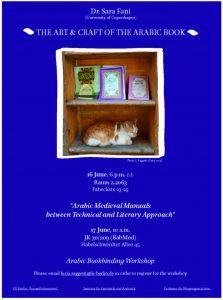The panel “Medicine in Bible and Talmud” at the 2016 EABS Annual Meeting will take place on Tuesday, 19 July. It aims to offer a comparative perspective by keeping an eye on the embeddedness of medical discourses on illness and disease in their surrounding cultures. Such a perspective will allow for assessing Talmudic medical ideas of disease within a broader history of medicine and to determine their particular Jewishness. While addressing the interaction between various medical discourses the panel relates to questions of the transcultural history of science(s) and knowledge in (Late) Antiquity.
9:00 am – 12.30 pm
Jewish Concepts of Health, Illness and the Human Body
Belinda E. Samari (University College London): Conceptualizations of the Human: The First Domino in Medicine?
Jason Mokhtarian (Indiana University): Charms against Diseases and Bodily Injury in the Aramaic Bowl Spells from Sasanian Mesopotamia.
Regis Nessim Sachs (Ecole Pratique des Hautes Etudes): On Fevers The Third Discourse On Consumption by Isaac Israeli (850-c.932).
Talmudic Approaches to Therapy
Monika Amsler (Universität Zürich): The Whole of the Sugya is More than the Sum of its Parts: Git 67b-70b and its Diverse Medical Backgrounds.
Tanja Hidde (Freie Universität Berlin): “One who swallows a hornet will certainly not live” – the role of insects, worms and crawlers in Talmudic medical discourse.
Sara Ronis (St. Mary’s University, Texas): “Place it Under the Stars Overnight”: Exposing Rabbinic Attitudes toward Water.
3:00 – 6:15 pm
Isabel Cranz (University of Pennsylvania): Ben Sirach,Chronicles and the Legitimacy of the Physician.
Tirzah Meacham (University of Toronto): The Expert Physician and Embryotomy in Rabbinic Literature.
Markham J. Geller (Freie Universität, Berlin/University College London): Abaye as Medical
Expert (‘mn).
Lennart Lehmhaus (Freie Universität, Berlin): Rabbis and/as Doctors? Expert Knowledge,Medical Practitioners and the Division of Healing Professions in Talmudic Tradition
For the conference’s full programme click here.



 Die
Die